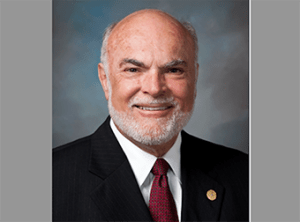Proposed NIH budget cuts would set back cancer research nearly two decades and slow American medical innovation
Published 8:35 am Wednesday, March 22, 2017
Editorial by Nancy Neel
Washington, D.C. –The president introduced a proposed FY 2018 budget today that includes deep cuts to medical research. If approved by Congress, the cuts would represent 19 percent of the National Institutes of Health’s (NIH) total budget and would likely result in a $1 billion cut to the National Cancer Institute (NCI).
A statement from Chris Hansen, president of the American Cancer Society Cancer Action Network (ACS CAN) follows:
Trending
“The proposed reduction in NIH funding of $5.8 billion would represent a significant setback for millions of American cancer patients, survivors and their families. It would also dramatically constrain the prospect for breakthrough American medical innovation—an essential American economic driver.
“If enacted, the budget proposal would likely result in a nearly $1 billion decrease for cancer research at NCI—making it the largest funding reduction in its history. The cuts would set research funding back to the level it was in 2000, when accounting for inflation.
“We are at the cusp of tremendous breakthroughs in cancer research, making it exactly the wrong moment to turn back the clock on progress against a disease that continues to kill more than 1,650 people a day in this country.
“Less than six months ago Congress passed the 21st Century Cures Act. This bill represented lawmakers’ overwhelming bipartisan commitment to the promise and necessity of medical research to our country’s future. Now is the time for Congress to capitalize on that investment rather than reverse course by drastically curtailing NIH research funding.
“For the last 50 years every major medical breakthrough can be traced back to investments in the NIH. Because of these investments, there are more than 15.5 million American cancer survivors alive today and researchers stand on the cusp of numerous innovative new diagnostic tools and treatments. From new immunotherapies that harness the body’s own immune system to destroy cancer cells to less toxic and more precise chemotherapies and advanced diagnostic and preventive tools.
“These developments save lives and spur economic progress. NIH-funded medical research is conducted in thousands of labs and universities across the country. These grants in turn spawn increased private investment and development. Drastically reducing NIH’s budget would jeopardize our nation’s potential to save more lives while simultaneously risking America’s position as the global leader in medical research.
Trending
“This year, 1.7 million Americans will be diagnosed with cancer and more than 600,000 will die from the disease. On behalf of all those affected by cancer, we urge Congress to reject these steep budget cuts and, instead, continue their critical investment in life-saving, innovative research and cancer prevention.”
ACS CAN, the nonprofit, nonpartisan advocacy affiliate of the American Cancer Society, supports evidence-based policy and legislative solutions designed to eliminate cancer as a major health problem. ACS CAN works to encourage elected officials and candidates to make cancer a top national priority. ACS CAN gives ordinary people extraordinary power to fight cancer with the training and tools they need to make their voices heard. For more information, visit http://www.acscan.org/.
Nancy Neel, Tri Chair ACS Hardin/S Jasper Co Relay For Life
Event Leadership Team Hero’s of Hope 2016/2017
Alumni HOH Class 2015
Texas Advocacy Team 36th Congressional District, ACT Lead
American Cancer Society Cancer Action Network






